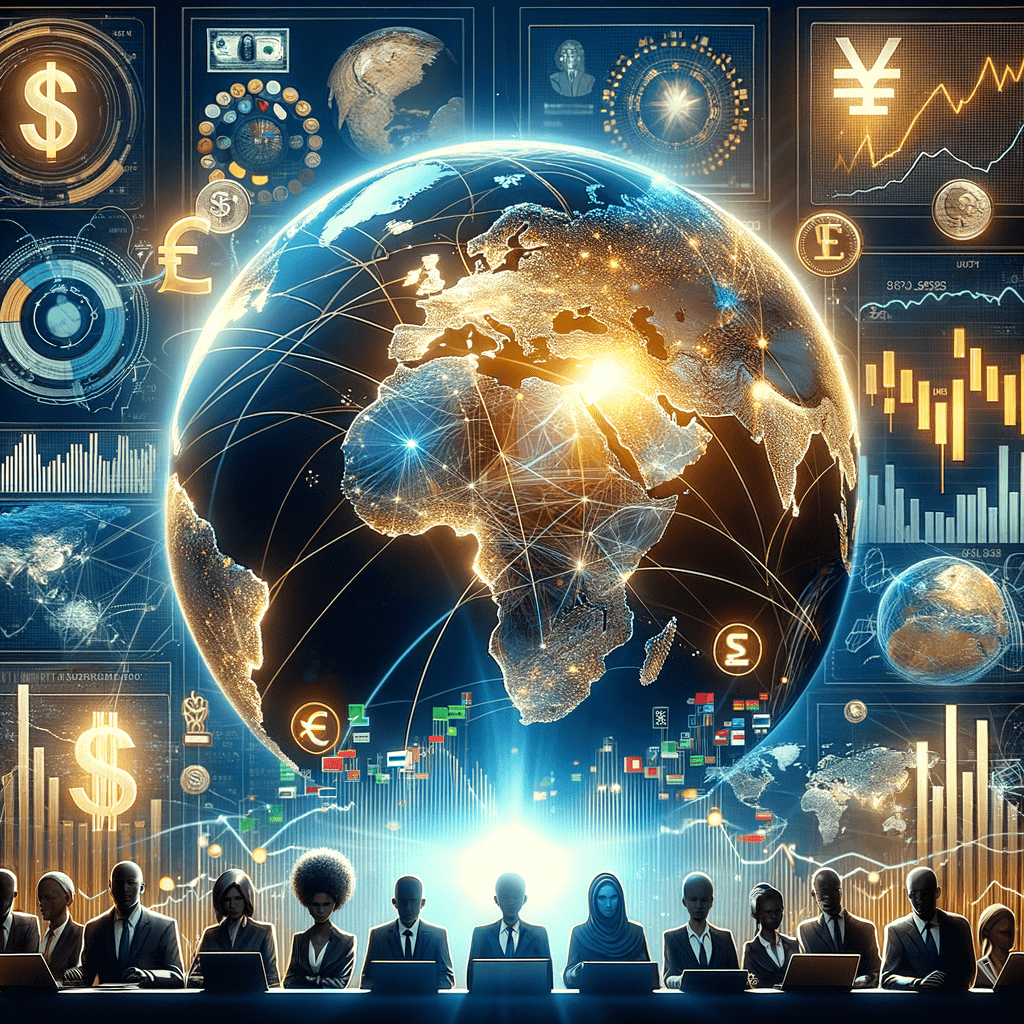Oh boy, let me just say there’s something so intriguing about the way the International Monetary Fund (IMF) and the World Bank work their magic in the complicated world of politics and economics. You know, sometimes I feel like they’re those crucial but often overlooked background players in a school play—like that quiet kid who helps keep the chaos from going full-blown—but behind the scenes, they’re doing a lot of heavy lifting.
Honestly, I think these institutions are kind of the unsung heroes of our crazy, ever-changing world. They sneak in like these ghostly figures, tweak some knobs, shift some gears, and fingers crossed, help keep everything from spiraling into chaos. Gosh, that’s a heavy responsibility, right? Imagining them makes me think of an orchestra trying to find harmony in the noisy mess we call global issues. It’s not an easy gig.
Origins and Purposes
The backstory of the IMF and the World Bank? Well, picture this: after World War II, the world was like a teenager caught in a messy room—everything was all over the place. These organizations stepped in, kind of like responsible parents, aiming to clean things up and prevent future trouble. The IMF jumped in to lend a helping hand to countries in financial pinches—kind of like that buddy who loans you a small amount to get through the end of the month.
Then there’s the World Bank, thinking big and dreaming about schools, roads, and healthcare. If the IMF is your hustling friend, then the World Bank is that mentor with big dreams for your future. They’re about laying down long-term plans, and isn’t that just something?
In the Thick of Crises
These institutions have dealt with more crises than anyone would like. They’re in the thick of it, like that consistent support during a chaotic storm. I mean, remember the Asian Financial Crisis back in the late ’90s? Yup, the IMF was putting together financial packages like there’s no tomorrow. Sure, sometimes it felt like applying a band-aid in the middle of a hurricane, but they had to try something, you know?
It’s a balancing act, like helping someone with their credit card bill while delivering a not-so-gentle lecture about their spending. It’s tricky, and it never feels easy.
A Boot on the Ground Approach
A lot of folks see them as necessary meddlers, and I kind of get that. The World Bank gets right in there, boots on and all, building those essential blocks in developing countries, like roads and hospitals. But boy, local governments can be a bit grumpy about it, the whole oversight thing not really winning them any popularity contests. It’s that universal struggle we’ve all faced with a boss who seems to “know it all.” C’mon, we’ve all been there.
Critics in the Wings
And oh boy, let’s not pretend it’s all rainbows here. Yup, there are critics, lots of them, waving flags about how these institutions sometimes come in with these blanket solutions that don’t quite fit. There’s truth there, no denying it. We’ve all seen how globalization can feel a bit like trying to fit a big shoe on a small foot.
Sometimes the IMF and World Bank miss the mark on capturing the human essence behind economics. Like, don’t we all know that moments where data doesn’t capture the real struggle? It’s a tricky dance, balancing stats with lived experiences.
A Gentle Observer’s Perspective
So where does all this leave us? I ponder these roles and picture a complicated relationship, stretching and flexing to meet the world’s needs. The IMF and World Bank—they’re like the world’s therapists, mediators in times of need. It’s pretty tough work, but in my opinion, they’re always learning, always evolving. The frantic parent vibe fits them well—always studying, absorbing, trying to do better.
It’s a reminder that behind the mighty facade are actual people with a heart, working towards a world where financial doom isn’t just waiting around the corner.
Humanizing Economics
In the grand scheme of things, they reflect the world’s challenges back to us. How about we start humanizing the larger narrative a bit more? Because, at the end of the day, these people are dreaming of a world where crises are stories of the past. Just imagine if they could one day host a gigantic “Mission Accomplished” bash, hanging their hats knowing they did something worthwhile.
Until then, they’ll keep running their marathon, stumbling and learning but ever striving for that elusive harmony. They’re a unique kind of hero, trying to nurture a world that needs every bit of compassion and action it can get. Here’s to them, doing what they can, one step at a time.




